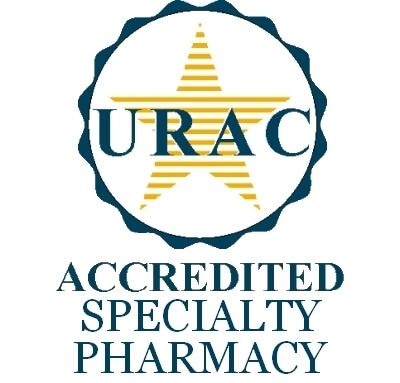Compounding Services in Brooklyn, New York
What Is Compounding?

How Does It Work?
Pharmaceutical compounding is the science responsible for the creation of customized medication. Compounded medications are created by combining individual ingredients in the exact strength and dosage form required by the patient and their own unique needs.
What Are the Benefits of Compounding?
There are benefits associated with compounding, many of which focus on providing patients with pharmaceutical products that have been customized to fit their own unique needs when standard marketed drugs fail to do so.
Compounding is often required for medical reasons; some patients require a particular non-essential ingredient to be removed from their medication to prevent an allergic reaction. Others require compounded medication to acquire an exact dosage amount that is unique to their own personal needs and which may not be available in the available marketed drugs.
Compounding pharmacies are also used for more optional reasons. Often times, patients will need their medications in a different form. For example, if an elderly or pediatric patient has difficulty taking their medication in capsule form; a compounding pharmacist can provide the same medication in a cream base form to allow the patient to apply the medication topically, or in a syrup or solution form for easier administration. Pharmaceutical compounding is also used to change the taste and color of medications, to make it more palatable and aesthetically appealing to patients, especially with children and even animals.
Who Prepares Compounded Medications?
Compounded medications are ordered by a licensed physician, veterinarian or other prescriber, and must be mixed in a safe and carefully controlled environment by a licensed compounding pharmacist.
Types of Compounding
Pain Management
Living with chronic pain is a reality for countless people, both young and old. Many of the available pain relief options come in the form of narcotics or drugs with substantial side effects. While these options may help reduce the pain, the numerous side effects can be cause for great concern. With the advancements in pharmaceutical compounding, these people can now receive medication that is customized for their own unique needs in order to provide pain relief. Utilizing a number of different compounding solution options such as creams, gels, ointments, sprays, capsules and others, painful conditions can be managed in a fashion tailored to the individual needs of each patient.
Dermatology
It can be difficult to find the right solution for skin concerns such as acne, rosacea, eczema, psoriasis or even cosmetic concerns such as fine lines and deep wrinkles. Many skin care products can leave unwanted side effects such as dry, thinning, red, peeling and irritated skin. Compounding allows for the right medications to be customized to the patient’s needs by carefully selecting the right moisturizing agents, non-irritating bases and hypoallergenic products to treat your concerns based on your skin type. Compounding solutions for dermatological concerns come most often in the form of creams, ointments, gels, sprays, topical powders and shampoos.
Pediatrics
Nobody wants to have their child’s health depend on whether their son or daughter refuses to take the medication due to it tasting “yucky” or because it is not available in a kid-friendly dosage form such as chewable tablets or liquid, or because the child cannot swallow a large tablet or capsule. Often times the medication is difficult to measure and find the appropriate dosage for a child. Pediatric compounding gives the ability to completely customize the medication for your child’s unique taste preference and condition in mind, whether that includes being preservative free, dye-free, sugar-free or any other customization that may be required. The medication can be delivered in a more child-friendly compounding solution such as gummies, troches, lozenges, lollipops, oral liquids and more.
Geriatrics
The concerns we have for dosing medication in children are often shared for medication dosage for the elderly. The older we get, conditions such as dry mouth make it very hard to swallow tablets and capsules. Also, many elderly patients need to take several medications in dosages that are lower than what is normally required for the average-age adult. Compounding offers a solution to address some of these issues by combining multiple drugs into one preparation, which may not only make it easier to administer but also more convenient for the patient. Geriatric compounding solutions come in many different vehicles such as oral liquids, creams, ointments, gels, rapid dissolving tables, injections, suppositories and more.
Hormone Replacement Therapy (HRT)
Hormones play a huge role in our overall state of health. Unfortunately, as we get older our hormone levels can increase, decrease or fluctuate. These changes in hormone levels cause symptoms ranging from weight gain/loss, mood changes, hair loss and everything in-between for both men and women. Compounding allows for the appropriately prescribed treatment to be completely customized based on the patient’s hormone levels, symptoms and health concerns where medication that is commercially available may not be able to address or be suitable to their needs. The most prevalent HRT compounding solutions are creams, gels, troches, lozenges, drops, injections, capsules, vaginal suppositories and rapid dissolving tablets.
Veterinary
Most medications are manufactured with intended use in humans rather than animals. While the drug itself might still treat your furry friend, it is the other ingredients, the inactive ingredients, which can sometimes be toxic to your pet. Compounding allows for the most appropriate medication therapy by taking into account the unique habits and taste preferences of your pet. When dealing with veterinary compounding, the most popular compounding solutions are oral pastes, creams, ointments, gels, oral liquids, chewable treats, capsules and powders.
Are Compounded Prescriptions Safe?
The Food and Drug Administration recognizes that the practice of pharmacy compounding is an important public health alternative for patients who require medication that is not commercially available, or not available due to drug shortages. For example, pharmacy compounding may be required if a patient needs a customized medication without a certain dye due to an allergy.
To ensure patient safety, compounding prescriptions must be prescribed by a licensed practitioner and compounded by a licensed pharmacist. Compounding pharmacies must also comply with the regulations set forth by State Boards of Pharmacy. In addition, the products and supplies used by compounding pharmacies should come from Health Canada, FDA-registered and inspected facilities.
As a Health Canada and FDA-registered establishment, MEDISCA seeks to comply with cGMPs and takes a proactive approach in enhancing quality control. Furthermore, as a result of our commitment to quality, MEDISCA’s distribution facilities in Plattsburgh, NY and Las Vegas, NV have been awarded VAWD accreditation, demonstrating to our customers that we take actions to ensure the safe distribution of prescription drugs.
Do Insurances Cover Compounding Prescriptions?
Depending on your insurance plan, patients may be reimbursed by sending in claim forms. Many insurance companies will reimburse compounded prescriptions; however, we suggest that you consult with your insurance provider for eligible benefits.
Which Types of Prescriptions Can Be Compounded?
Almost any medication can be compounded. Compounded prescriptions are intended for patients that require customized medication. Delivery vehicles that are often used for compounding include:
- Creams, gels & ointments
- Oral solutions & suspensions
- Tablets & capsules
- Lollipops & lozenges
- Sprays
- Suppositories
- Balms
- Powders
- Animal treats





 Facebook
Facebook Google +
Google + Twitter
Twitter Pinterest
Pinterest Instagram
Instagram Yelp
Yelp